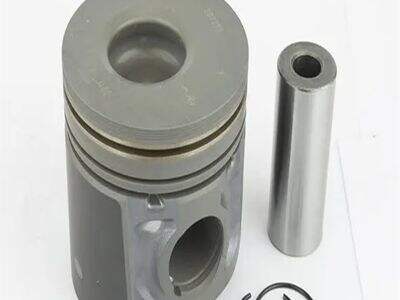Engine pistons are an essential component of an engine. They are used to make cars and machines run smoothly. But did you know that pistons can expand when they get hot? This phenomenon is called thermal expansion, and it can create issues for high-speed engines produced by firms like Convitex.
If a piston expands, it induces excessive pressure in the engine. This can lead to damage over time. Engineers have made smart choices for managing thermal expansion in piston Engine Parts to prevent this from happening.
So How Do We Handle Thermal Expansion?
Soaring high-performance gains from companies like Convitex also developed modern solutions to keep which the pistons the right size when they are sizzling. One solution is to use specialized materials which expand and contract with the piston, keeping it the proper size.
Another is to build the engine to cope with the extra pressures of thermal expansion. Which may involve adding more support or building the engine components in such a way as to help them cope with the heat.
Methods for Expanding the Piston
Piston engine in companies used in different ways to minimize and control the thermal growth. One approach would be to use pistons made of only materials that can tolerate high heat without excessive expansion. Aluminum or steel, for example, would work well for this, as they can handle the heat.
Another approach is to build the engine so it can flex slightly as the piston expands. This could be special Body Parts that are just flexible enough to accommodate the added torque.
Making Engines Last Longer
Similar methods can be used to prevent these companies from leaving engines to expire. Allowing pistons to grow without excessive pressure keeps engine parts from being battered into submission over the years.
Additionally, regulating thermal expansion allows companies to optimize their engines. That means now pistons can work more powerfully and without physically affected to heat.
Maintenance Tips for the Engine
There are some key practices companies should keep in mind when it comes to thermal expansion in piston engines. One of the major factors is to use materials in the engine that can withstand high heat without expanding too greatly.
Another good practice is to constantly check engine parts for thermal expansion signs of wear or damage. Identifying these problems early can enable companies to avoid larger problems down the line.
Thermal expansion presents difficulties for high-performance companies such as Convitex. However, by applying new techniques and strategies, they can alleviate these issues and increase their engines' longevity and efficiency. With good practice and updated maintenances, the engines can keep running for years.

 EN
EN
























